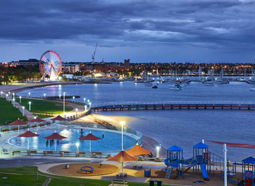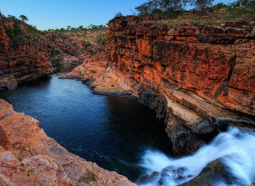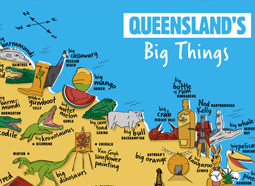If you are considering a new life in Australia, take a close look at Tasmania. A mixture of stunning scenery and mild climate with affordable, welcoming and safe cities, Tasmania can offer your family a quality lifestyle and a secure future.
Where is Tasmania?
Tasmania is Australia’s Island state lying just off the south east coast. Hobart – Tasmania’s capital city – is a one-hour flight from Melbourne and one and a half hours from Sydney.
What’s Tasmania like?
Tasmania’s mountains, forests and lakes offer a sharp contrast to the dry flat plains covering much of ‘mainland’ Australia. National Geographic Traveller magazine ranks Tasmania third out of 115 destinations worldwide. Tasmania’s landscape is made up of roughly 40 per cent national park.
Hobart (pop. 200 000) can offer a diverse city lifestyle with restaurants offering fantastic, fresh seafood and produce with a clear focus on gourmet living, friendly bars, and shopping, all within a short drive to some of the world’s greatest natural heritage
Who migrates to Tasmania?
Typically people who place a high priority on their quality of life or who want their kids to enjoy a safe, outdoors focussed childhood. Tasmania also attracts people who like the idea of living in Australia but don’t enjoy extreme summer heat or severe water restrictions.
Others come for quite specific reasons; to escape pollution, overcrowding or stress, to be able to go fishing or to buy the waterfront property or boat they could never afford back home.
What’s happening?
Tasmania is home to a number of events such as the Falls Music Festival, the 10 Days in the Island arts festival. The Taste of Tasmania food festival, The Sydney to Hobart ocean yacht race and regular national and international sporting fixtures.
Popular destinations include Wineglass Bay; Hobart’s well-preserved waterfront precinct; the vineyards of the Tamar Valley; and Cradle Mountain and the many other national parks. Tasmania recently was awarded ‘world’s number one tourist destination’ by Lonely Planet’s Blue list for the beautiful Bay of Fires region on Tasmania’s east coast.
Educational choices – Private or public education with well qualified teachers and some of Australia’s smallest class sizes. The University of Tasmania offers a wide range of high quality mainstream degrees as well as niche studies in furniture design, Antarctic and Southern Ocean studies and aquaculture.
Recreation and leisure – Hiking, kayaking, rock climbing, surfing, fishing and diving are popular. Sports infrastructure is excellent and a wide variety of cultural activities (such as theatre, festivals and performances by the Tasmanian symphony orchestra) are on offer year round. A typical day out might be a barbeque with friends, a game of golf or a fishing trip, visiting a vineyard, taking the kids to play sport or shopping at a local market.
Cost of living – Similar to other Australian states. Housing, private education and locally produced food tends to be cheaper than other parts of Australia.
Transportation infrastructure – Public bus services operate in all major centres and in rural areas.
Housing market – According to the Real Estate Institute of Australia, Hobart is currently Australia’s cheapest capital city with an average house price of A$370,000 (June 2011).
Climate – Tasmania is the same latitude as Rome, Italy or Bordeaux, France. It has four distinct seasons and the surrounding oceans produce a temperate maritime climate with no extremes of heat or cold.
Tasmanian summers bring warm sun, sea breezes, clean sandy beaches and long twilights providing a fantastic climate for boating, bushwalking, beaches and fishing. Whilst temperatures above 30°C are not uncommon the average summer temperature is a comfortable 23°C. Winter has bright sunny days with an average temperature of 12°C.
Key industry sectors
Tasmania has a broad range of industries with an economic profile similar to Australia as a whole. Manufacturing, tourism, agriculture and food processing and forestry and timber processing are all key industries.
There are a wide range of job opportunities for health and medical professionals (registered nurses, etc), civil engineers, food specialists (chefs, etc), and construction metal and auto tradespeople.


